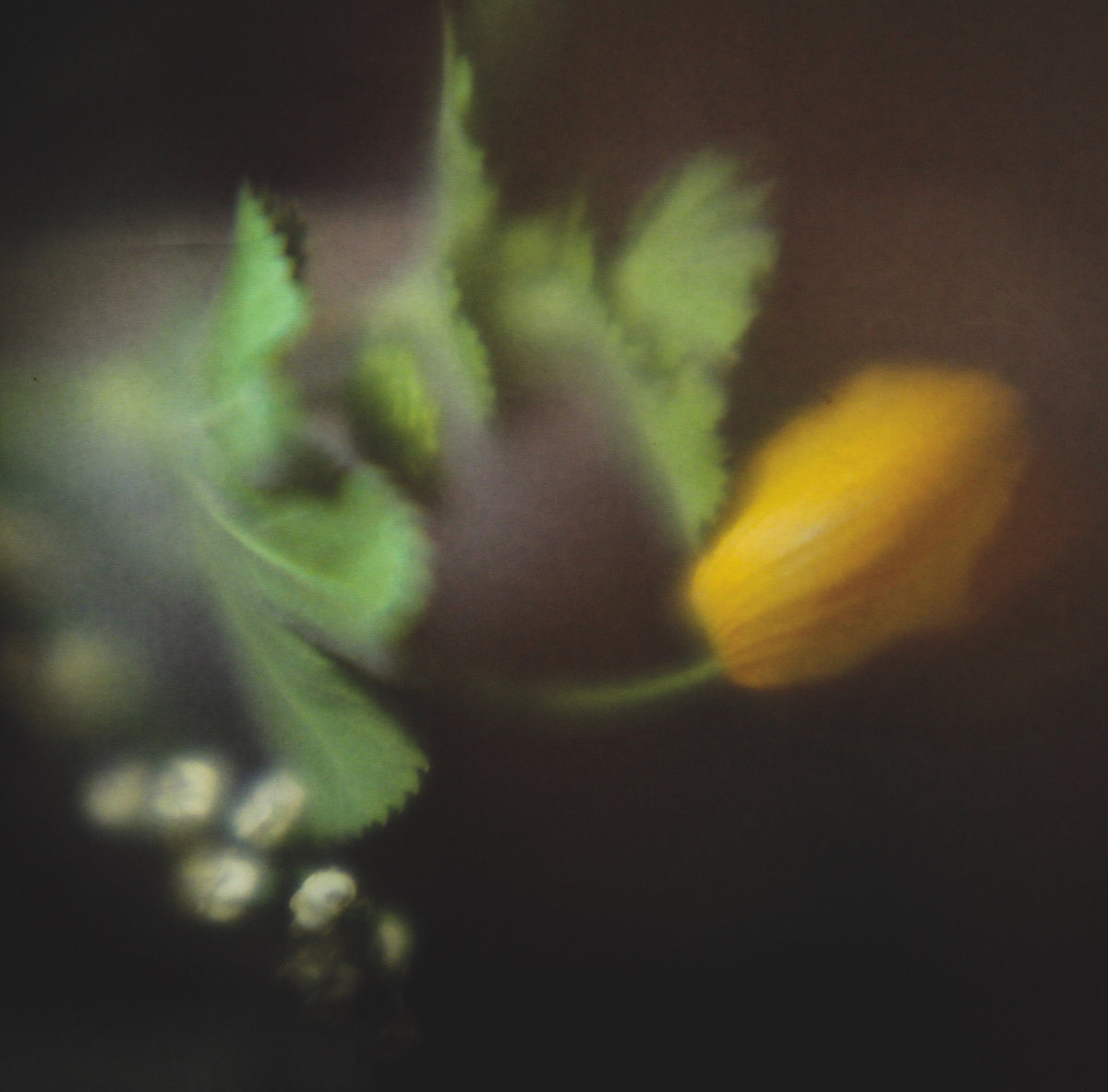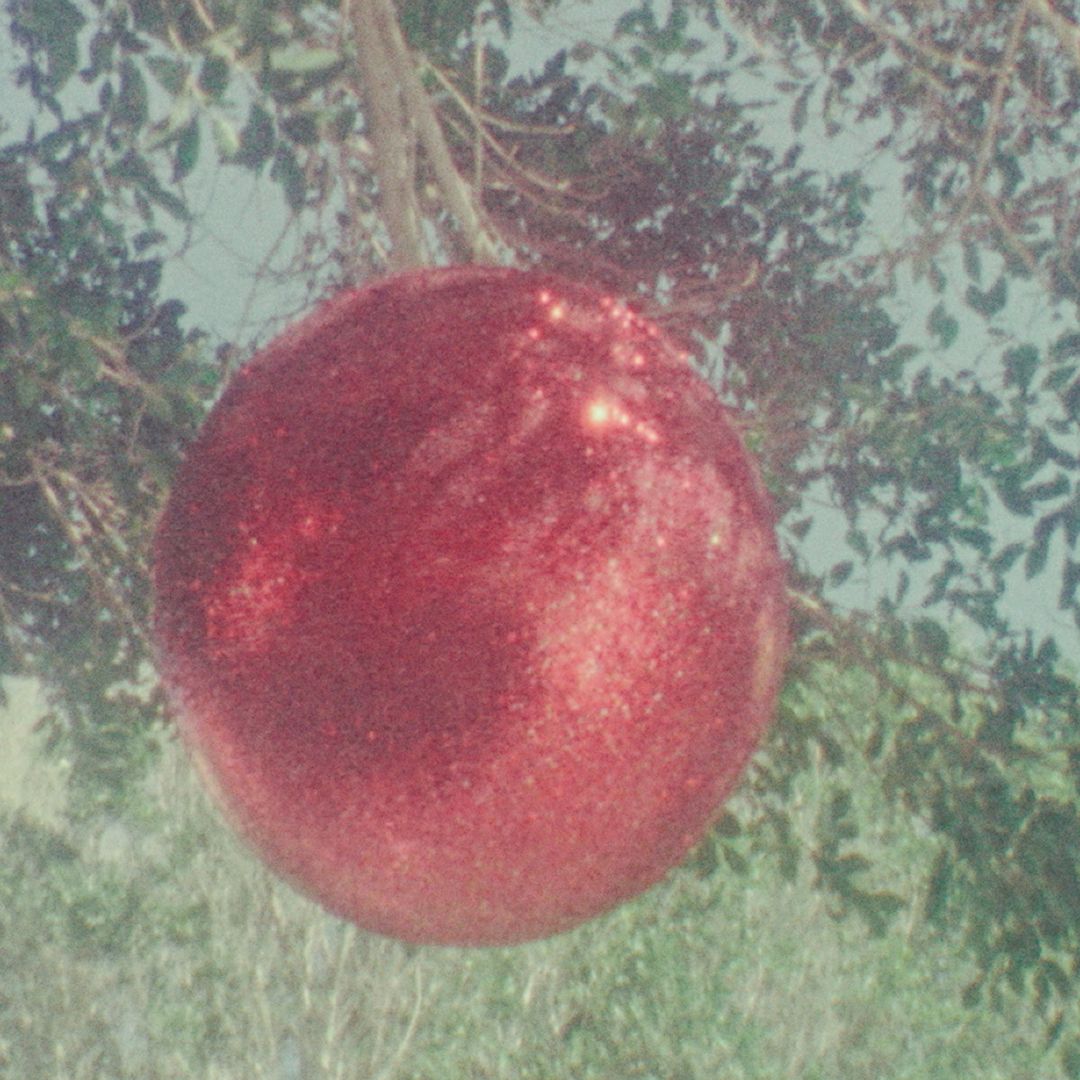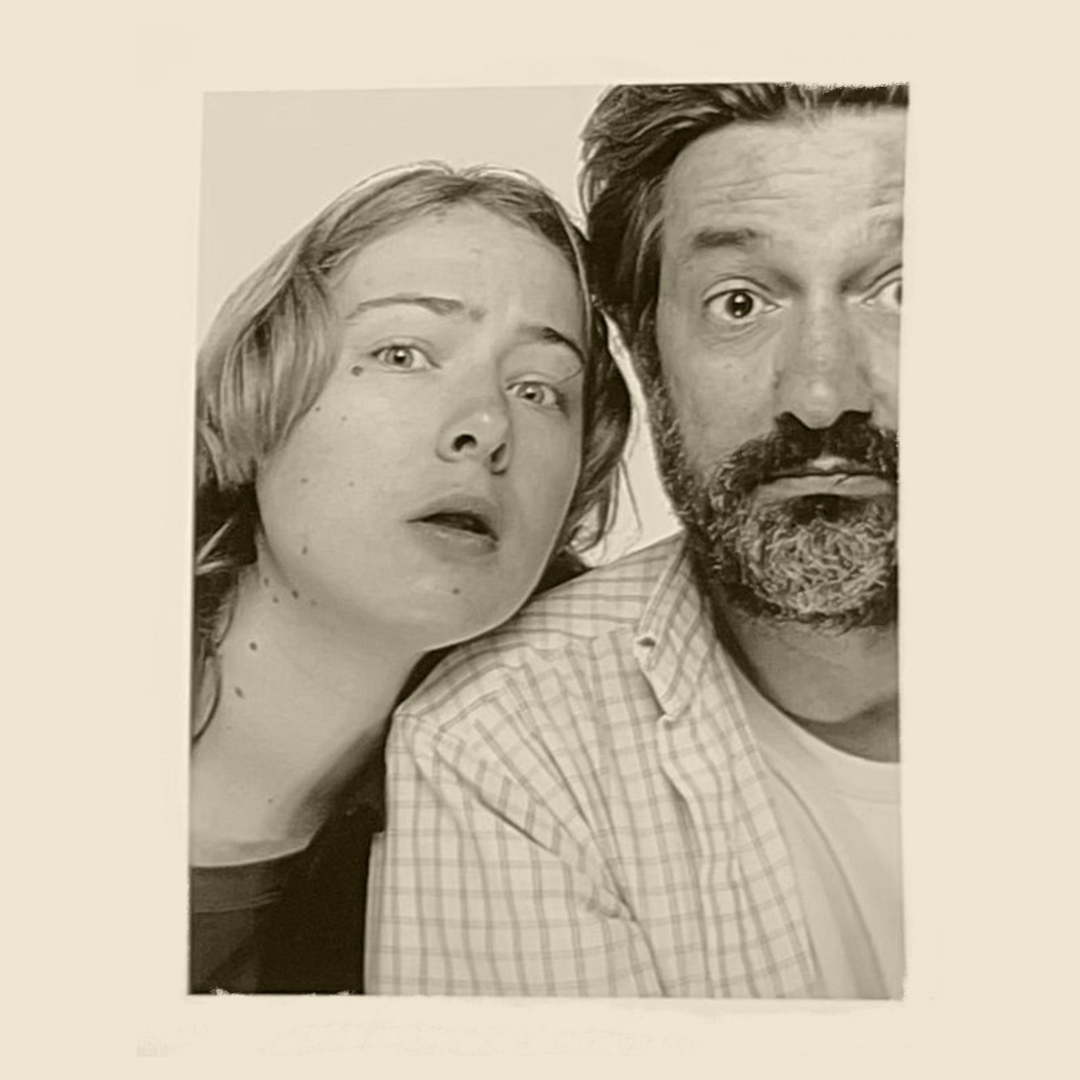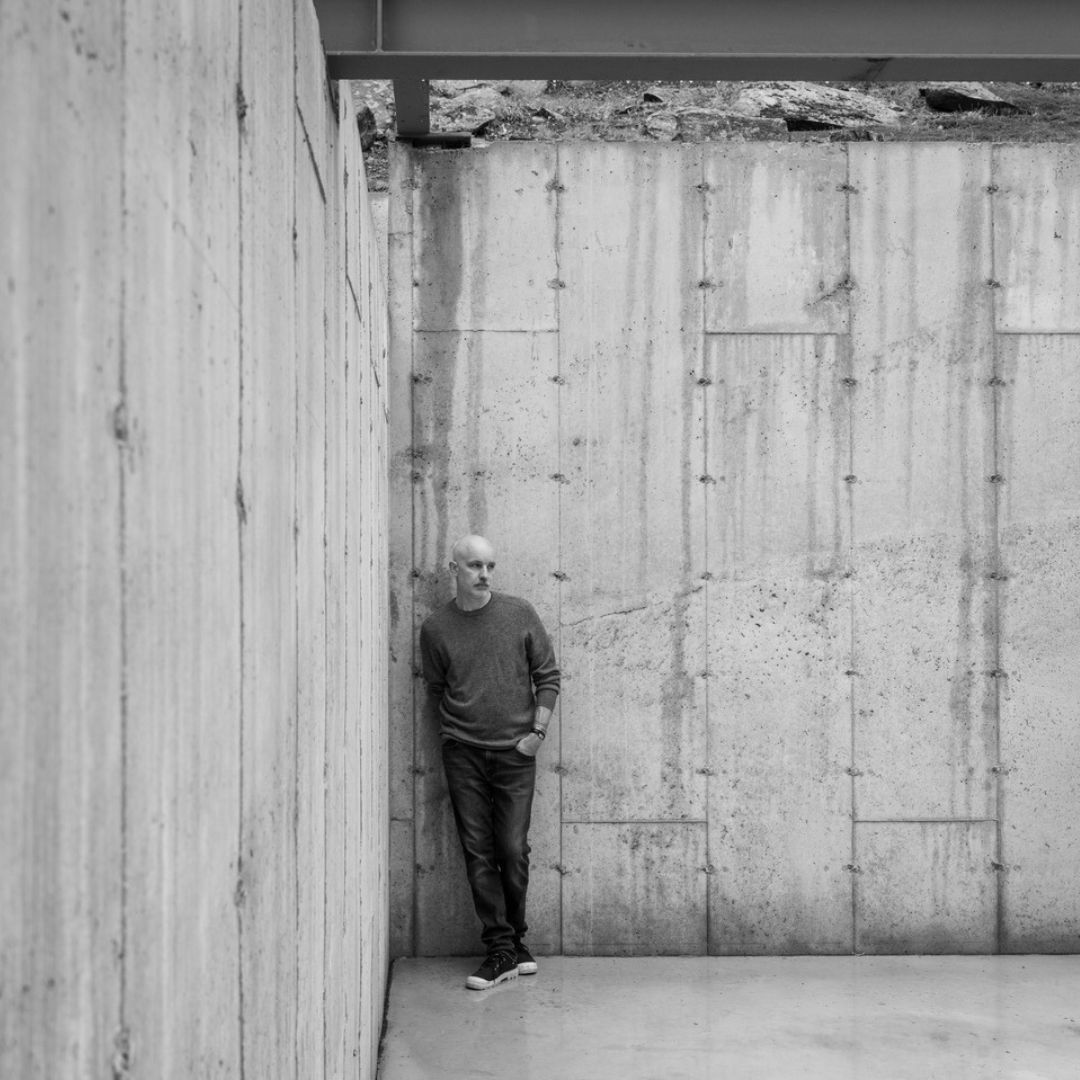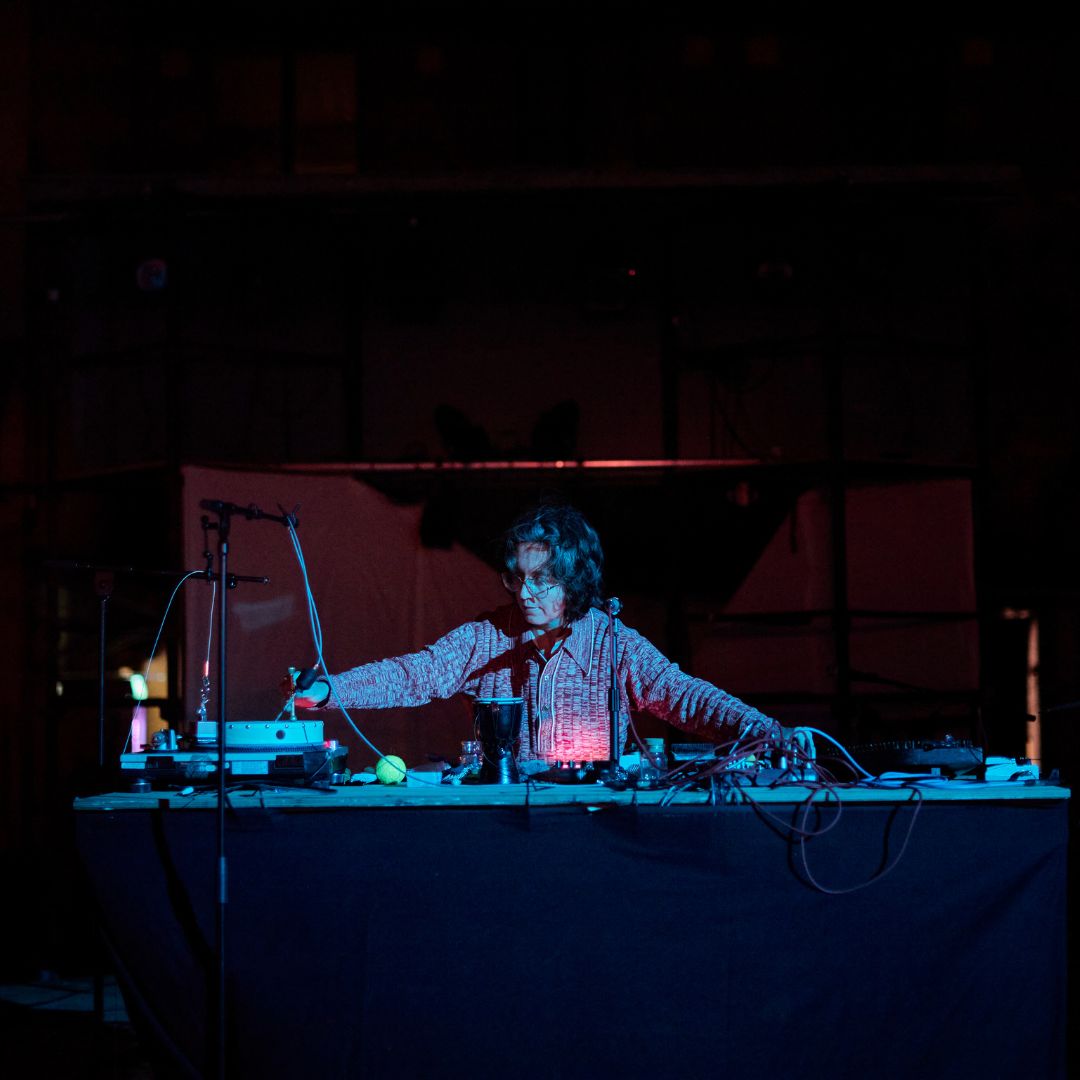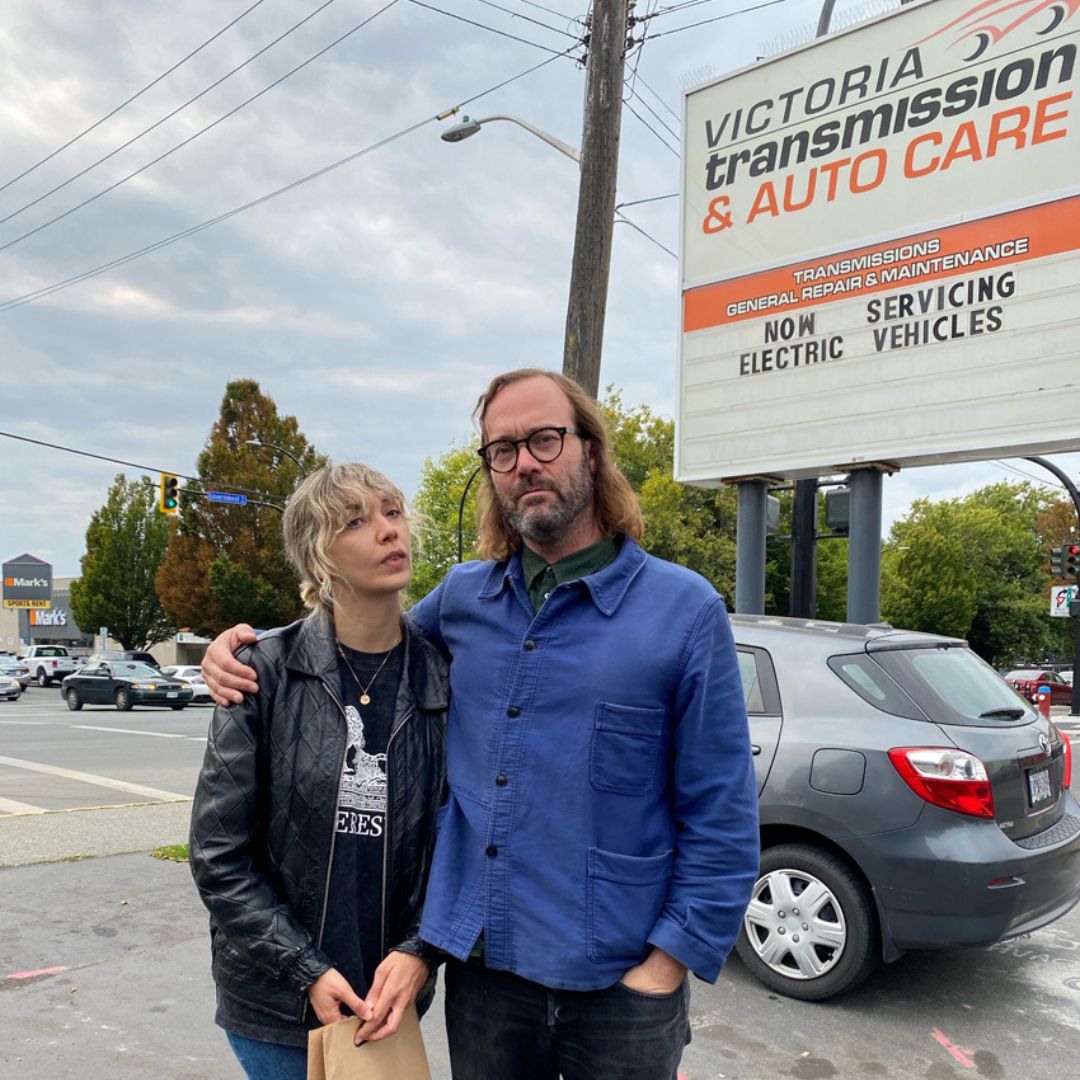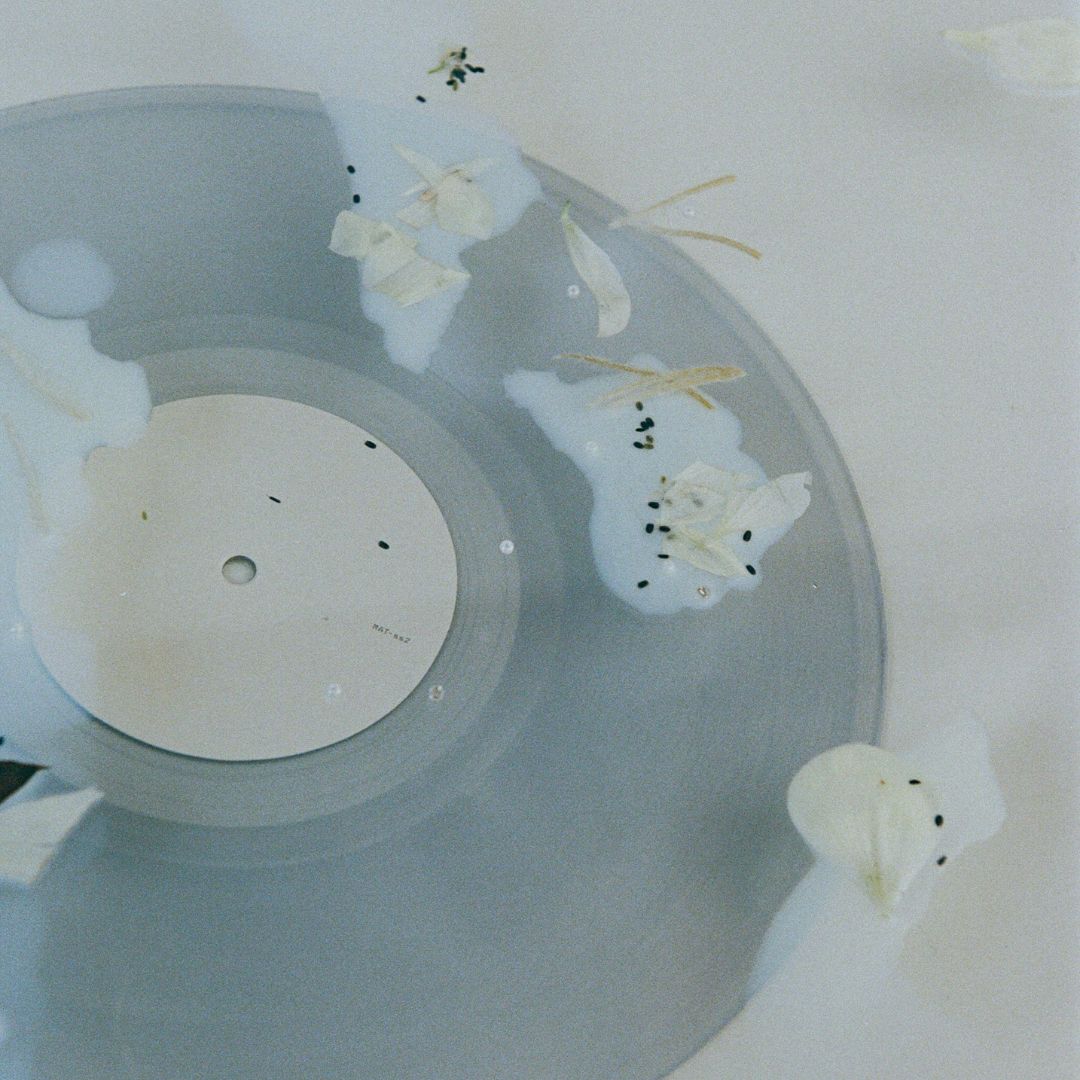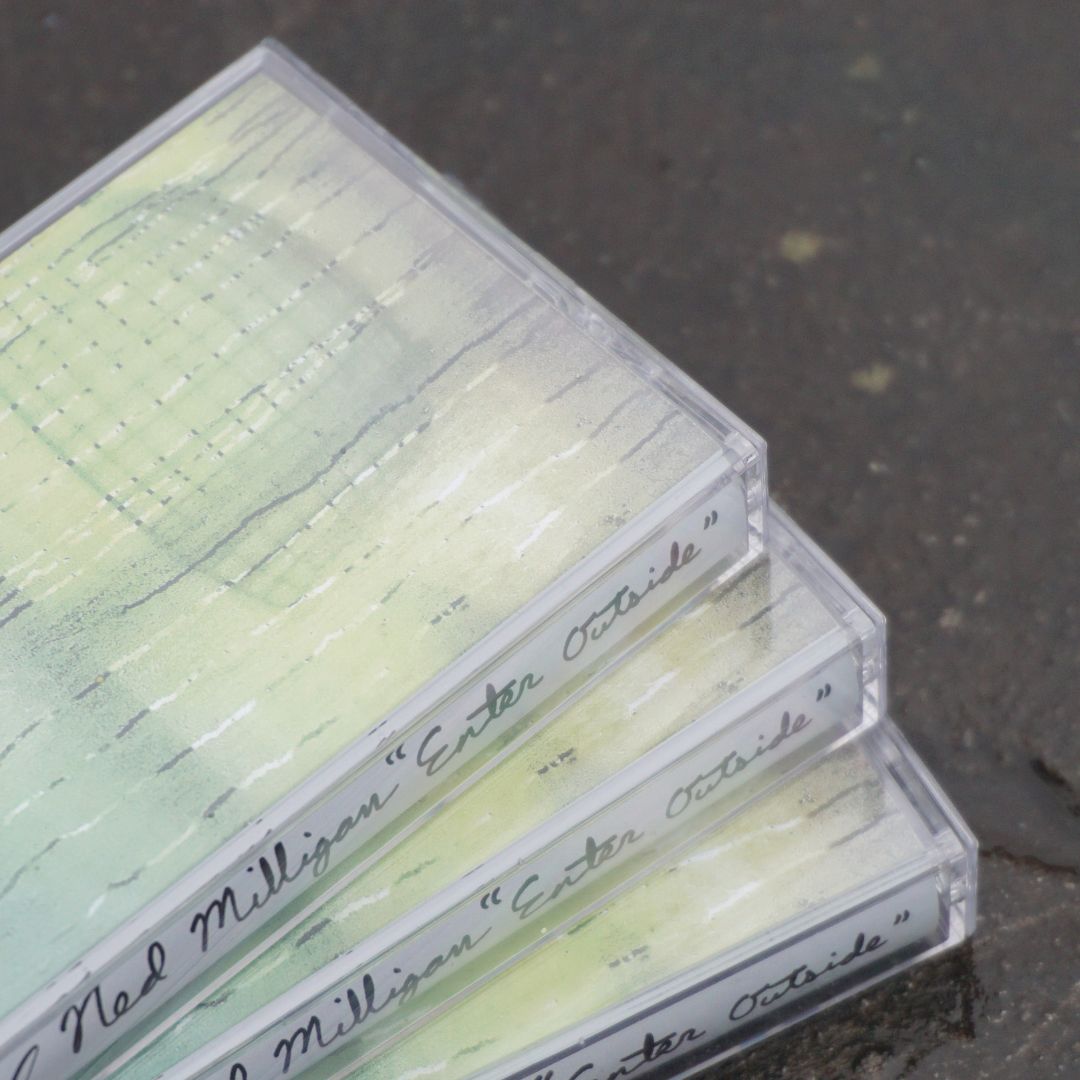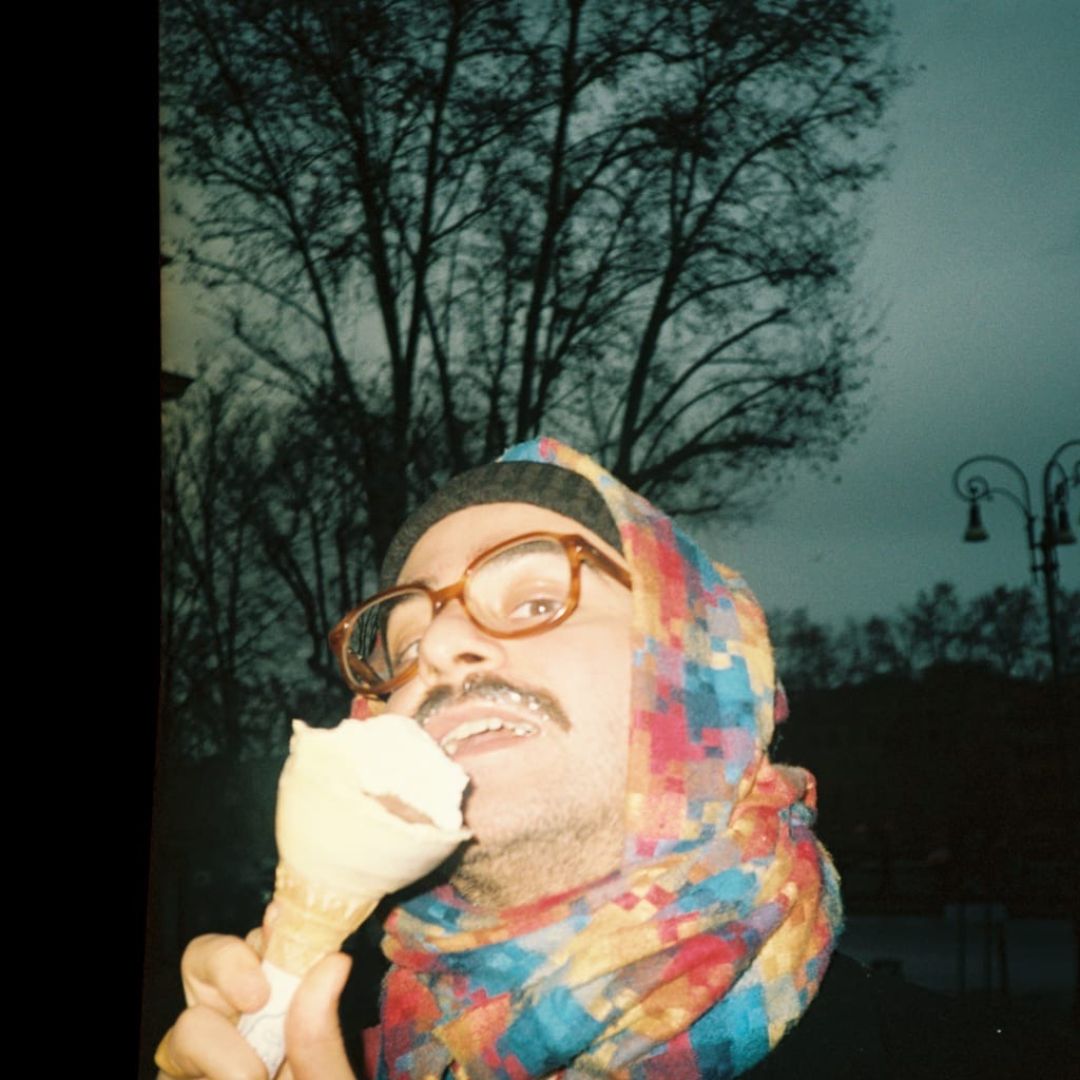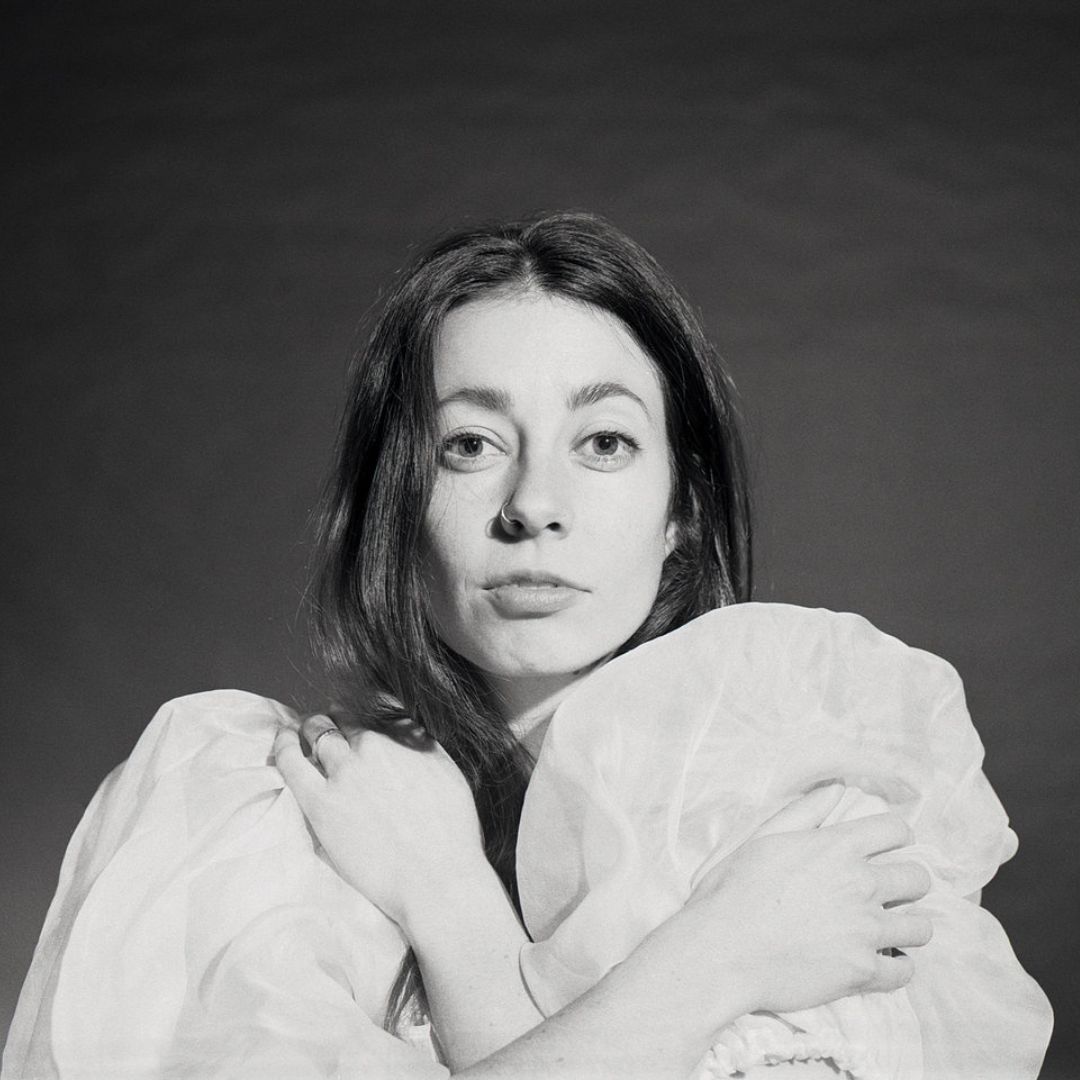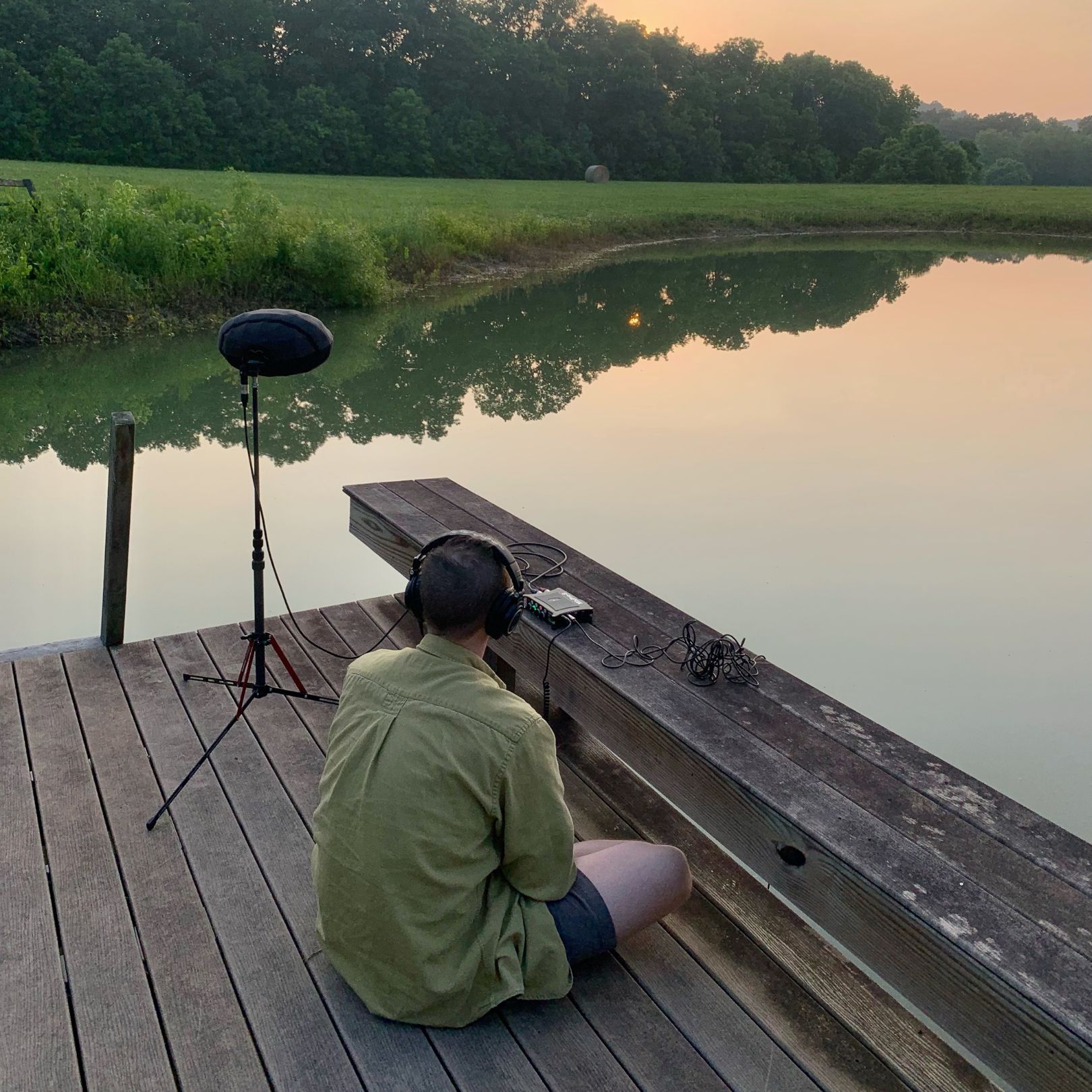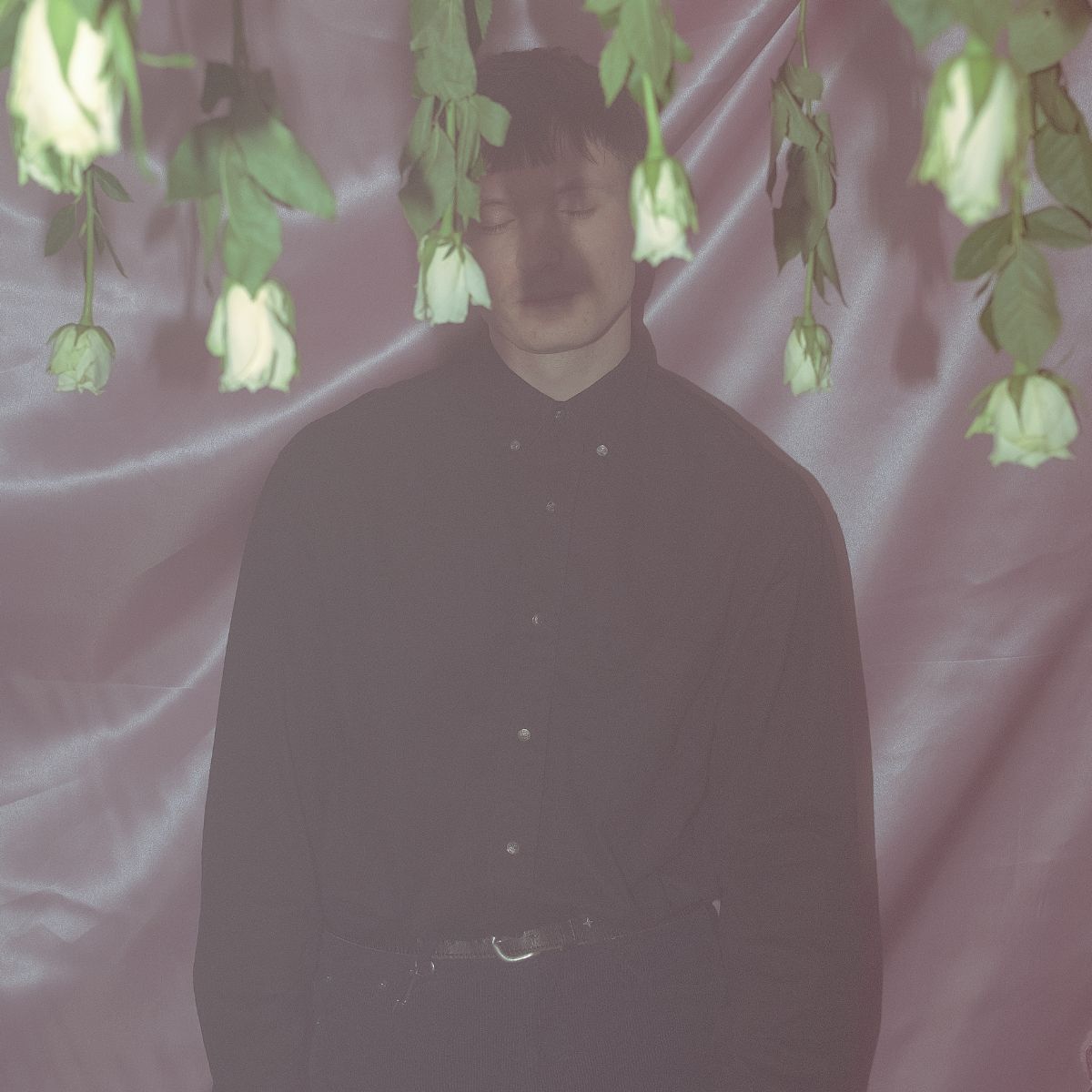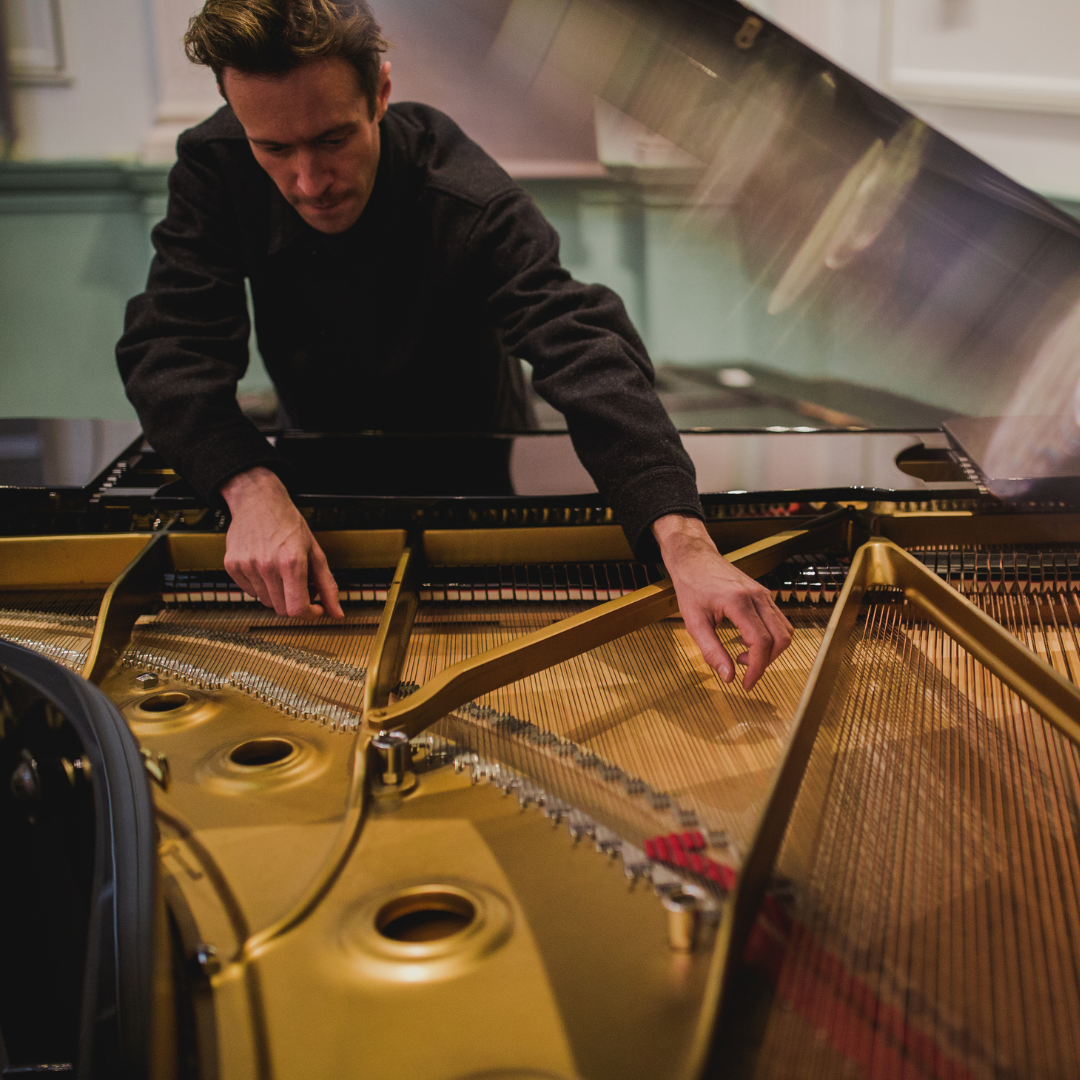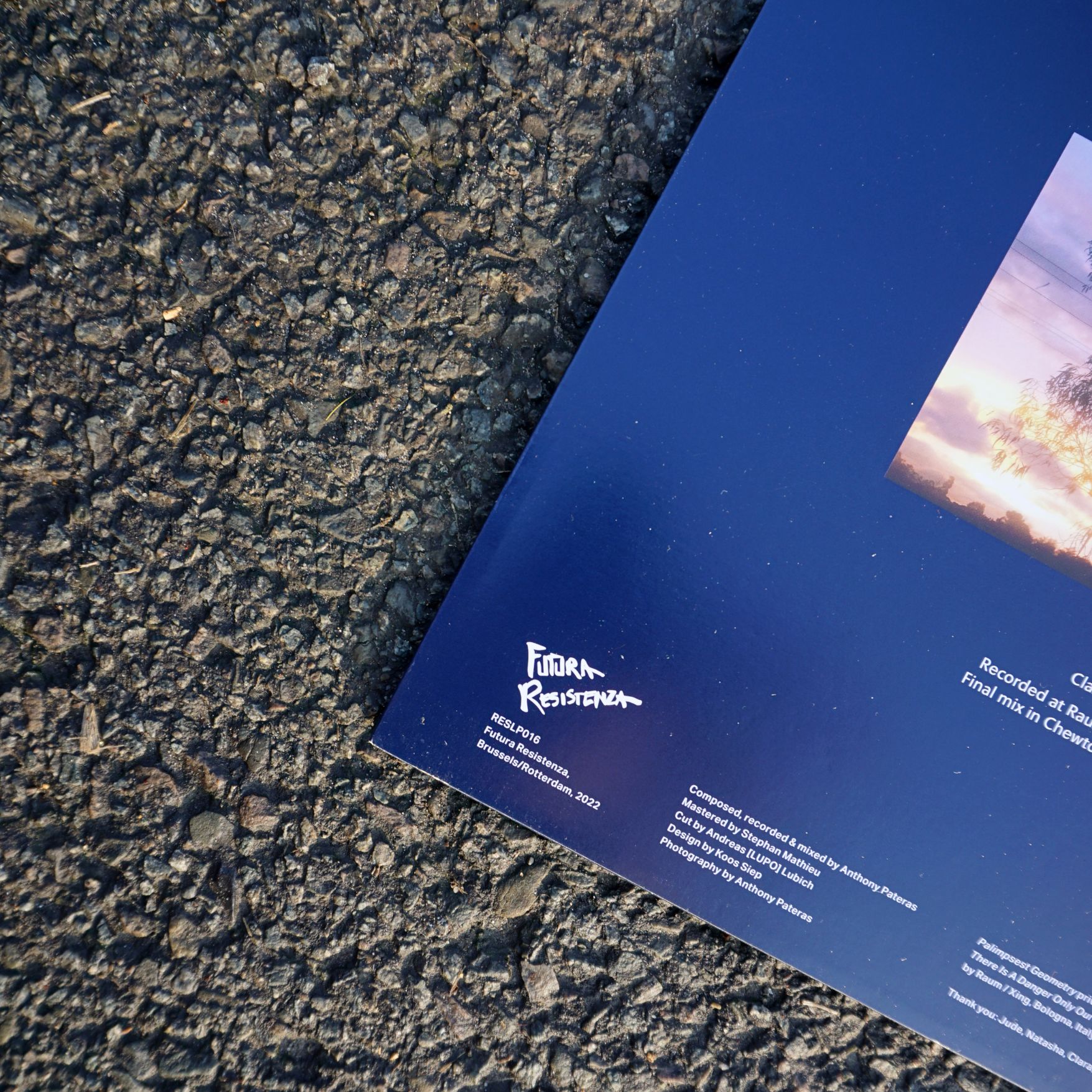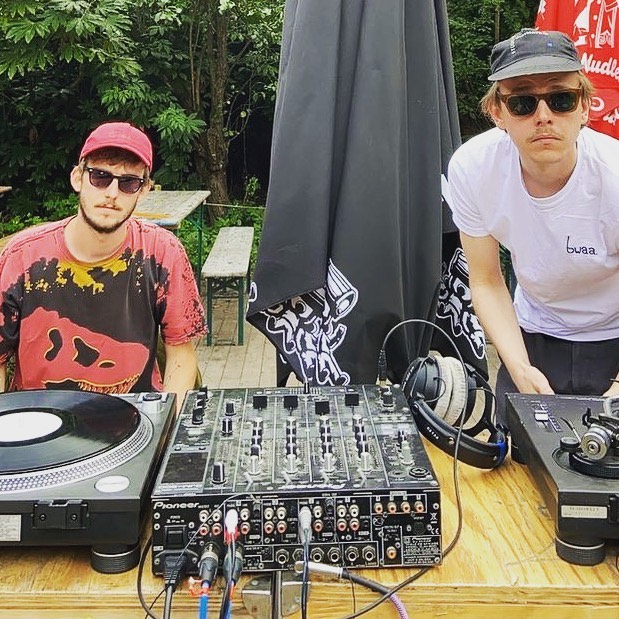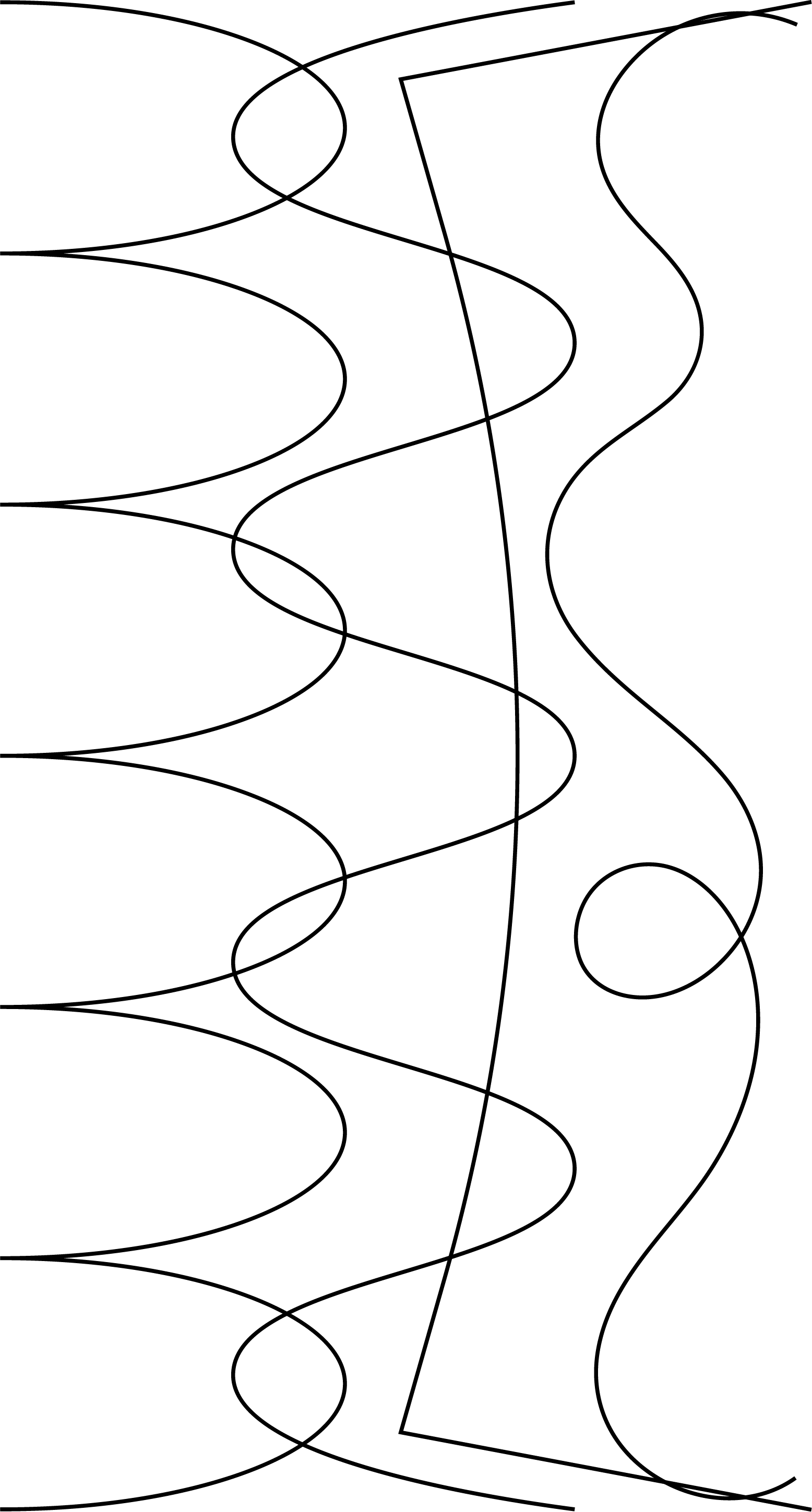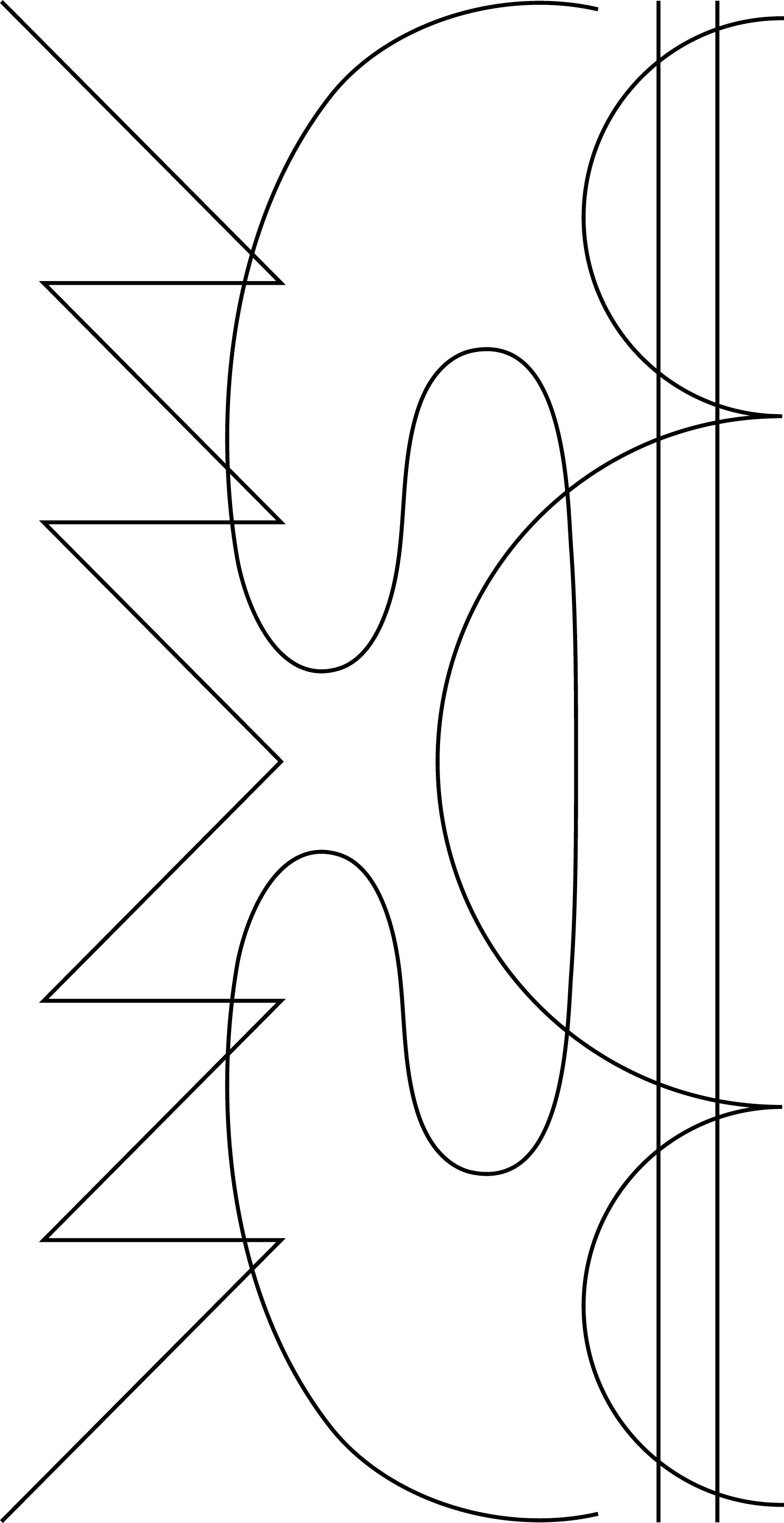painting musical scenes with razen
Razen is the playground of Brussels-based Brecht Ameel and Kim Delcour.
Together with an ever-shifting ensemble of musicians, they employ a wide array of ancient and sometimes unusual instruments to create emotive music that can’t easily be put into scores. Deviating from the comfortable confines of notes and rhythms, they turn to colors, texture and composition like painters do.
Engrossed with their latest album, we recently met the duo in an old and charming café in the heart of Brussels to get a glimpse of their universe.
Photography: Joeri Thiry
Razen means speeding in Dutch, but the music you create is often very soft and slow moving.
Kim: Although we play very softly, the intensity is under the skin.
Brecht: Our music has drive, even without rhythm at the forefront. We have a certain drive in our way of improvising and going from point A to B. There is movement in our music, even if it’s just seemingly very soft or very empty.
Kim: On a first level, our music is introverted. The anxiety seems to lie underneath.
Is that the feeling you want to express with your music?
Kim: Our latest album Blue Rot is very much that feeling. On the surface, it is calm, but there is something tense and unsettling about it.
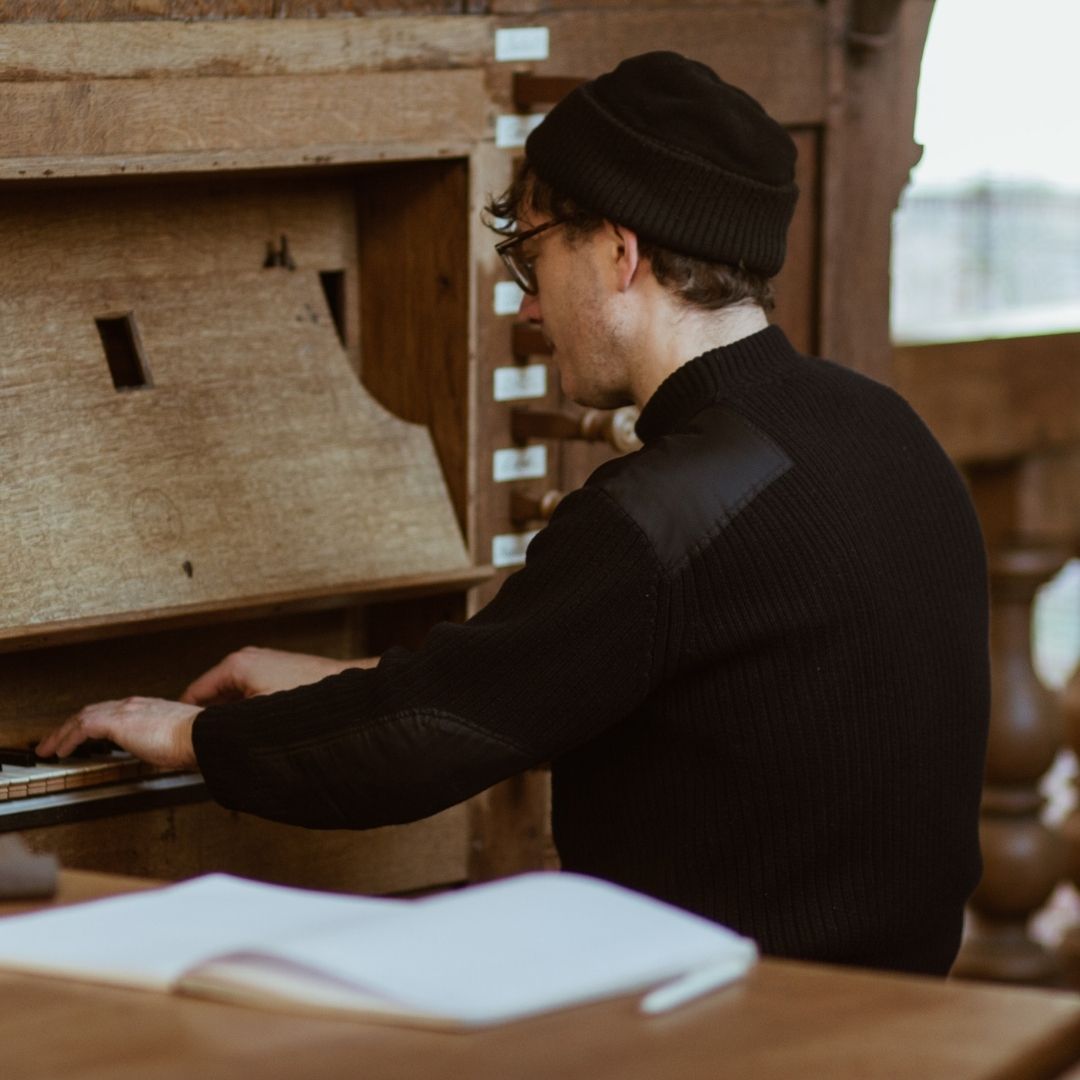
You often play with additional band members. Is it easy to convey the razen feeling to them?
Kim: In the last 10 years, we’ve only had six guests and we’ve chosen them very carefully. They need to be able to improvise, as a lot of classical musicians need a score and are not able to improvise. But we never work with a score. We never work with melody. We never work with rhythm. We never work with chords.
Brecht: In a way, it’s not so easy to play this kind of music. Usually, it requires a very controlled tone. Putting emotion in it requires virtuoso musicianship. It is totally different from a wild saxophone solo. People must be able to step into that direction and want to do it. They need to have the spiritual openness to play this kind of music.
Kim: When we talk about music, we also never use musical words. We use words such as texture and repetition that painters usually use. It’s very important for us to find musicians who can communicate in colors, moods or images.
How has your music evolved in the last 10 years?
Brecht: With every live set and with every new album, we approach the music differently. Yet at the same time, the way we tend to approach things and the way we tend to try to bring them into our world will remain the same. It may be very similar in the search for freedom. It’s just about trying to escape the boundaries as much as possible.
Kim: The spiritual aspect wasn’t so present in the beginning as it is now. When we first started playing together, it was mostly driven by experimentation and curiosity of what the instruments could sound like. Over the years, we realized that we are not playing instruments. We are the instruments.
Brecht: We also decided throughout the years that we don’t want to try to blow people away with volume and just embrace the nakedness of doing something soft. It could only evolve in this direction because we stuck together and experienced many things together. We have been quite severe about it.
Kim: Yes, we’re hard on ourselves.
And do you feel that you’ve already found your sound?
Brecht: We are constantly redefining our sound, but the essence is there.
Kim: Our last two albums may be very different in sound, but the intention remains the same.
Brecht: Next to the intention, the instrumentation also plays a crucial role. Kim is a specialist in early recorders and bagpipes. That’s a very rare combination and that certainly has an influence on our sound. Razen is mostly circled around the whole idea of just giving freedom to a sound.
Kim: Sometimes Brecht plays the church organ, sometimes he uses small string instruments, sometimes he plays the bouzouki, sometimes he plays an Indian harmonium. But whatever he plays, there will always be that tension and that atmosphere.
Brecht: I think our sound is defined by a combination of different things: the instruments we use, our way of seeing things, the other musicians that we draw along in our story. Those elements together are what makes our sound what it is.
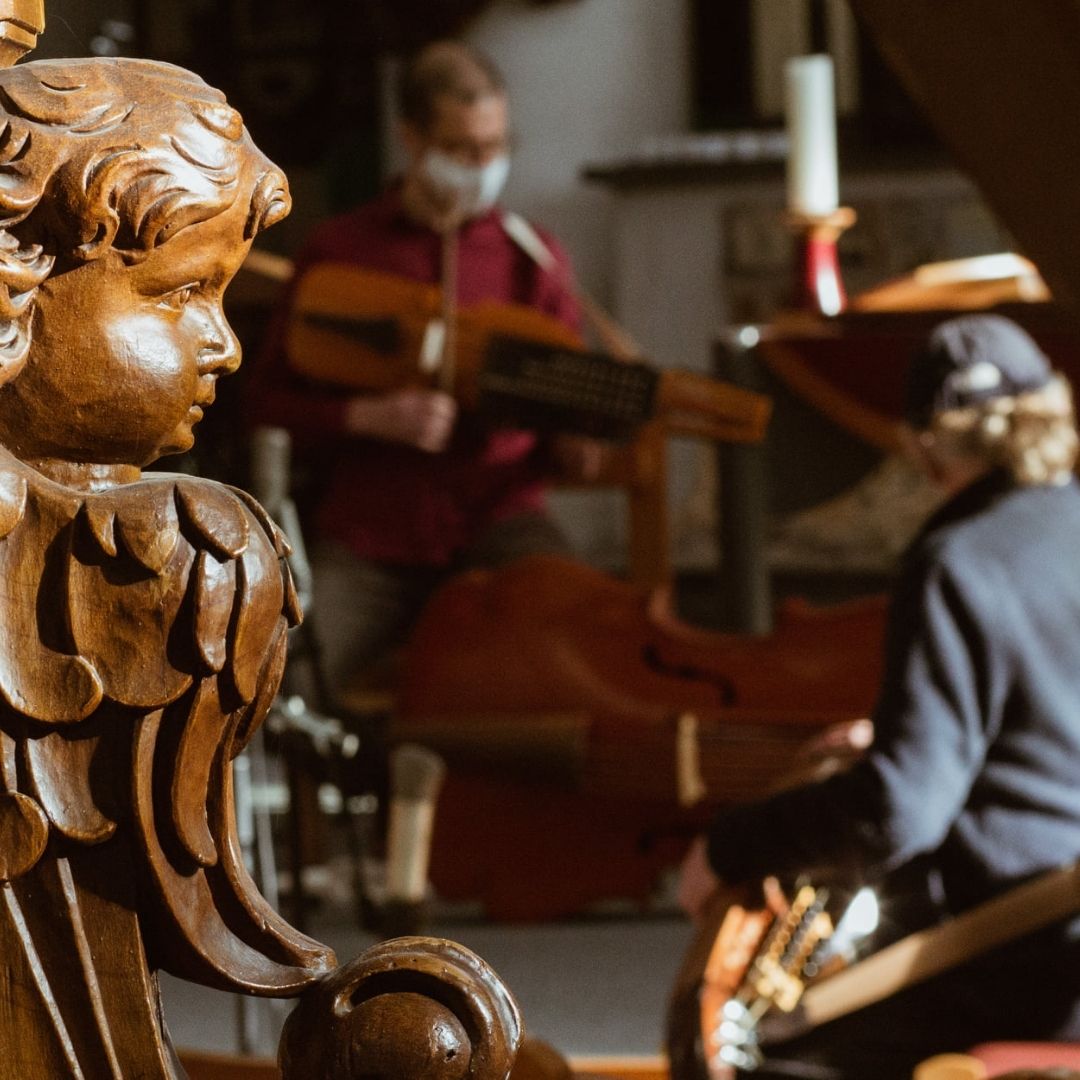
How do you go about the process of building an album?
Brecht: Sometimes the idea is there before the album.
Kim: We really had a strict idea for Robot Brujo. We went to the studio with the intention of making an album based on a book we both read and fervently discussed.
Brecht: That translated to tiny movements played in a very dehumanized way. For Blue Rot, we recorded in the studio, but it was only until after the recordings when we learned about the essence of the album. So, if we wanted to portray this essence in a good way, we had to look for a good title and the artwork.
Kim: It’s also about choosing the right tracks that belong together. We often throw away good tracks simply because they don’t fit very well in the specific mood or concept we want to convey with the album.
So, how do you know when an album is done?
Kim: We stop when we feel the story is there and it conveys what it needs to.
Brecht: Luckily, Kim and I have the same gut feeling about these things. I think it’s mostly because we are also avid readers too. We have a shared sense of knowing when a story is finished.
Did you have a color in mind when you created Blue Rot?
Kim: When we listened to the tracks, it really evoked an image of a tiny room with brown walls and someone who’s laying before the open fire.
Brecht: It had something to do with a solitary person but not knowing with full certainty if this domestic setting is positive or not. It also evokes the vibe of an afternoon daydream for me, as well. When you wake up from it, it reflects in a very unsettling way, and it also has a weird effect for the rest of the day. Those two images combined made the album.
Is there a difference between how you approach albums and live shows?
Brecht: We consider live shows and albums as two different worlds. When a new album is out, it doesn’t mean that we’re going to play those tunes at a live concert. For the albums, we also get to divide them in separate pieces, but a live show is just one big piece of music.
Kim: When you’re playing live, you need to create an arc of 45-60 minutes to keep the audience’s attention.
Brecht: I see them more as moments. Moments you share with each other and the audience. It’s a different focus, but the whole idea of being fully in the moment remains the same.
What’s your favorite concert setup?
Brecht: We always improvise during live performances. Whether we play in a grand church or a sober club, we adapt to the venue. We always play differently in every venue, as the acoustics tend to be very different. We also never play with the same band, so we adapt according to the situation.
Kim: I think the most important element for us is attention and focus. Our music doesn’t work when there is a lot of movement or talking.
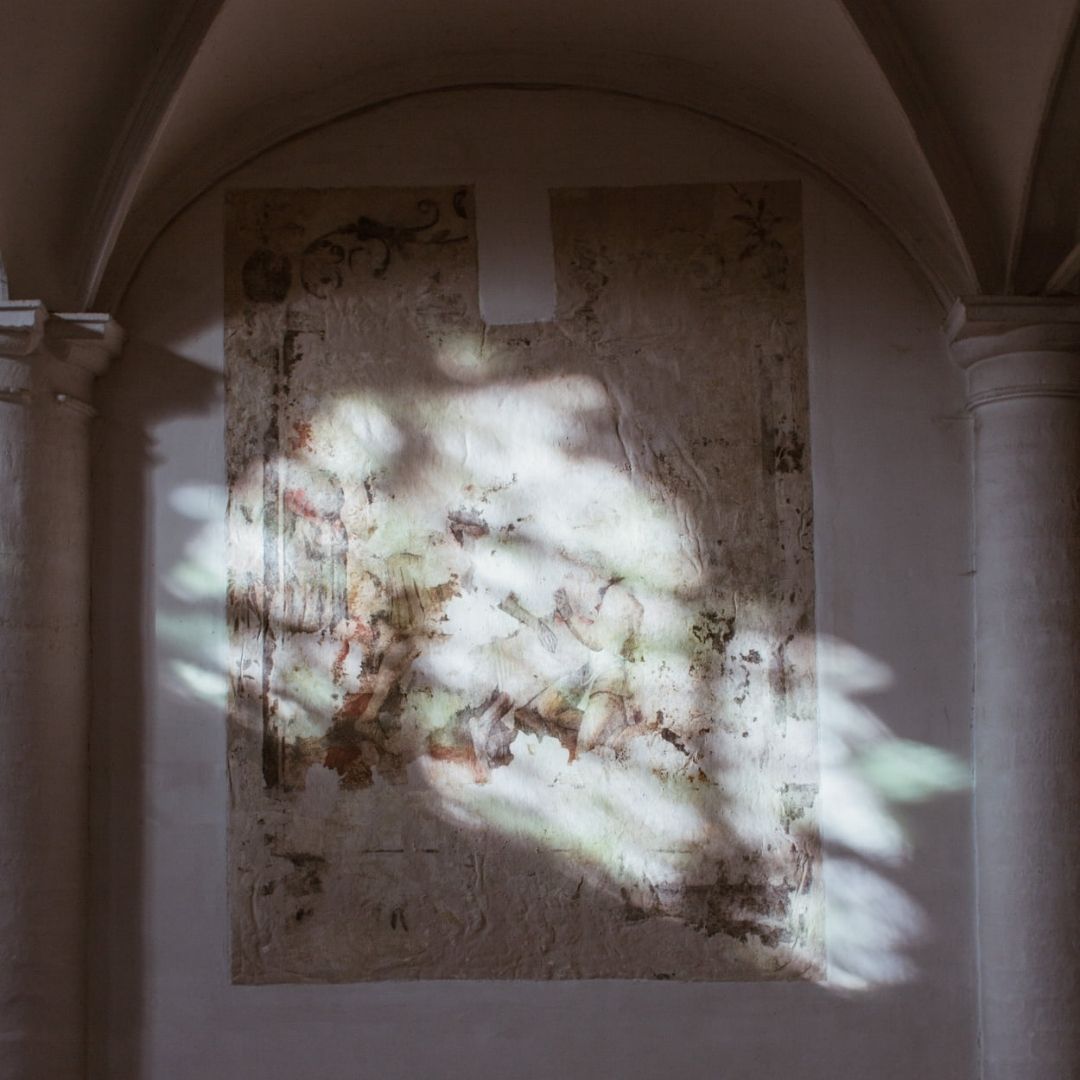
How did you gravitate towards recorders and bagpipes, Kim?
Kim: I didn’t choose it. My father played the bagpipe, and I have been playing it since I was eight.
For you, Brecht?
Brecht: I am a guitar and lute player, but I recognized from the onset that if we wanted to convey something primitive and intuitive with Razen, then I would fail to do it in the right way with the guitar. I am very aware of what can happen. The color of the instrument is also very distinct. So, I chose instruments that I’m less familiar with. I pick up on some early string or key instruments. When we are in the church, I go to the organ. I would never say I’m a good organ player, but I know what I must do to do it in the right way for our music.
You don’t have the same feeling with the bagpipe, Kim?
Kim: I see it as a painter who learned how to paint human figures. But this time around, he wants to be an abstract painter. That’s the thing I’m trying to do. When I play the recorder or bagpipe for Razen, I try to play them as naively as possible.
Brecht: Keep in mind, you must also be highly skilled to get to that point.
Kim: I’m in control because I know the pitch and I know how to play in tune, but I try at the same time to just play three notes in a very naïve way, although in the very right moments.
Brecht: Bagpipes and recorders do have a strong effect on people. I’m convinced that there’s something in their sound color that leaves a lasting impression. It’s not a sound that we are used to getting from a laptop. It is very primal. Especially if they are played in the right way, as Kim does, they can have a powerful effect.
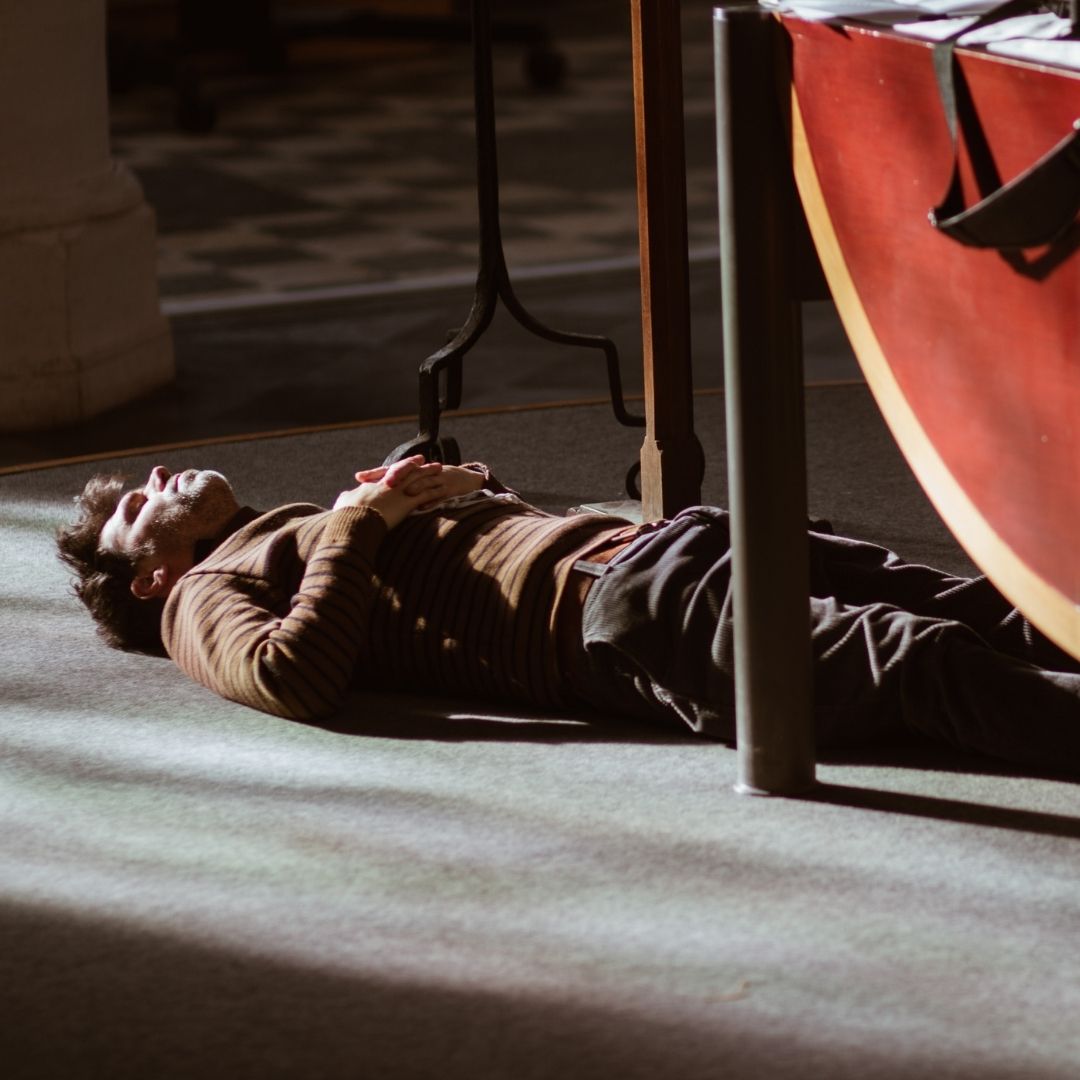
Do you approach your own music differently?
Kim: Unlike our music that is composed, Razen is pure improvisation. In the latest album, it was our first confrontation with the serpent. It was also the first time Brecht didn’t play the strings, as well. These are all specific situations that influence the sound of the music that we make together.
Brecht: I think our music with Razen is born from our conversations and from our friendship. With Razen, we never rehearse. We just get together to discuss books, films, or ideas and then somehow these end up becoming a concert or a recording.
Kim: It’s also music that is impossible to write as a score, because it has nothing to do with notes or rhythms. It’s mostly about colors or imagery.
Brecht: We place so much importance on elements that are never captured in scores, like very difficult phrasings or very specific ways of breathing.
Kim: I’m also a perfectionist when it comes to my own music, but it’s very difficult to be a perfectionist in Razen. There are a lot of things that can happen that are not so perfect in a classical way. We also very much welcome coincidences with Razen. When we play, we are very open to what might occur or what might happen. if something or someone does something, we go along. It’s our way of empathizing.
What are you most looking forward to in the next months?
Brecht: We recently created a soundtrack for a short film made by British artist Nicholas William Johnson. It is based on a sci-fi novel by James Lovelock called Novacene. It boils down to the idea that a hyper intelligent system will work in concert with humans to restore ecological balance to the planet. It will come to regard us as we regard plants.
Kim: The exhibition is called They Regard Us As We Regard Them and it will be exhibited in PLUS-ONE Gallery in Antwerp starting October 16.
To end, what advice can you give to a young musician?
Brecht: Be a good listener. Play less and listen more.
Kim: Go to museums and look at paintings. Find the link with music and try to translate it into music.
